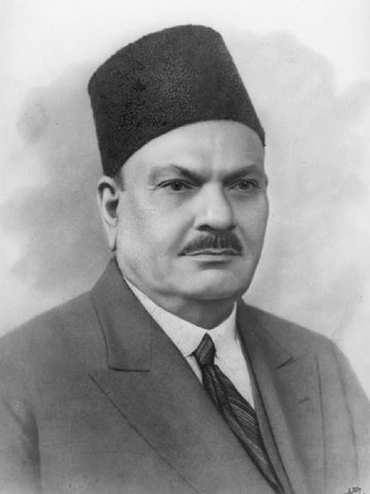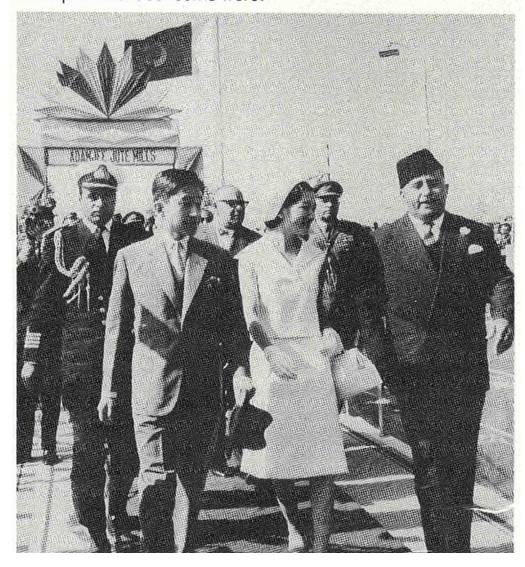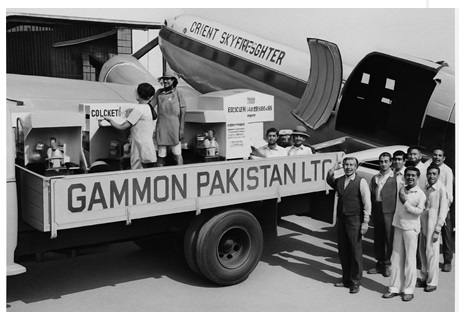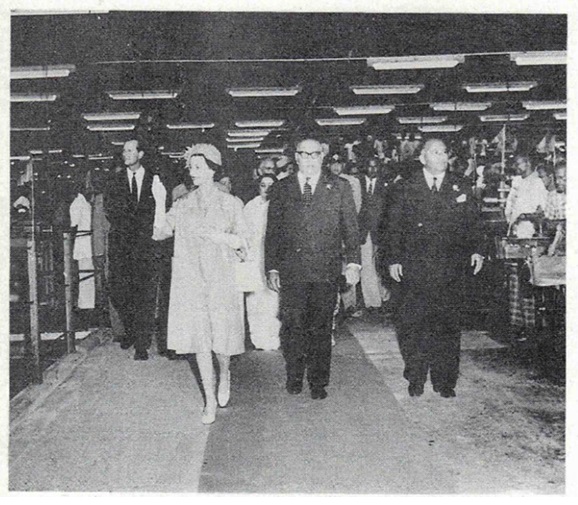
The founding father of the Adamjee group was the illustrious Sir Adamjee Haji Dawood. Born in 1880 in Jetpur, India, he started operating as an independent businessman in the late 1890s, whilst he was still in his teens. The first few years of his career were spent in the rice trade where, because of his keen business sense and financial acumen, he met with early success. Shortly afterwards, he expanded his trading operations and diversified into the jute trade.
In 1922, he established the largest match factory in Asia, in Rangoon, Burma (present-day Yangon, Myanmar). Shortly thereafter, he set up a rice mill, also in Rangoon. In 1927, he established a jute mill in Calcutta, India. By the mid-1930s, the Adamjees had become the largest exporters of jute products in the Subcontinent.
The Founding Father of the Adamjee family was not just a businessman. He was also an avid educationist and philanthropist. Education of the youth was a subject very close to his heart, and he was responsible for financing and helping a number of educational institutions. In recognition of his services to his countrymen, the British government knighted Adamjee Haji Dawood in 1938. Sir Adamjee sat on the board of directors of many prominent companies and institutions. Among those who counted him as their friend was the Quaid-e-Azam, Mr Mohammad Ali Jinnah, the founder of Pakistan. Sir Adamjee participated actively in the struggle for independence.
When the two separate entities of Pakistan and India were created in 1947, the Adamjees decided to concentrate their business efforts mainly in the lesser developed, East Pakistan (present-day Bangladesh).
In January 1948, Sir Adamjee was specially called by the Quaid-e-Azam to participate in the establishment of the State Bank of Pakistan (the central bank). It was during this visit that he suffered a heart attack and passed away.
His pioneering spirit lived on in the generations to come. Though Adamjee Haji Dawood passed away in the very early days of Pakistan, his trail blazing spirit and dedication lives on in the ideas and ideals passed on to his family. It was this same spirit and dedication that led the Adamjee group to spearhead the industrial and financial development efforts of the new country, which was industrially backward and possessed little entrepreneurial talent and experience.
In less than two decades, the Adamjee group set up and managed over forty industries/enterprises, each one of them vitally important in their own respective spheres. Amongst the more prominent concerns were:
ADAMJEE JUTE MILLS LTD:
Set up near Dhaka, AJML was the largest jute mill in the world, covering an area of 300 acres and employing some 25,000 workers. By 1950s standards, it was a mammoth undertaking and earned a significant amount of foreign exchange for Pakistan, by value addition of raw jute, prior to export. This was the flagship company of the group and through its network of overseas offices, played a major part in the global jute markets.
PATRAKOLA TEA COMPANY LTD:
In the early years of Pakistan, when the tea trade was entirely in non-Pakistani hands, this company was set up to create an indigenous share in the tea business. It became one of the largest groups of tea estates owning five plantations (over 16,000 acres) and having its own factories.

Crown Prince Akihito & Princess Michiko
visiting Adamjee Jute Mills
MUSLIM COMMERCIAL BANK LTD:
The early stages of Pakistan saw a financial market that was very limited in scale and range. MCB was set up by the Adamjee group to alleviate this situation and it soon became a major force in the country’s financial markets. MCB was nationalised in 1974 and subsequently privatised in the early 1990s. MCB is still one of the leading commercial banks in the country.

Pakistan’s pioneering airline, Orient Airways
ORIENT AIRWAYS:
The Adamjee group were one of the founders of Orient Airways – the country’s first commercial airline. It was subsequently nationalised to become the state-owned Pakistan International Airlines.
MORNING NEWS:
An English language newspaper which was the only daily newspaper, published simultaneously from Dhaka and Karachi. With the formation of the National Press Trust, control of this paper was passed on to the Government of Pakistan.
OTHER VENTURES:
These included large scale industries such as Dacca Vegetable Oil Industries, Star Particle Board Mills, Synthetic Resins, etc. Realizing that the key to growth was diversification, the Adamjee group extended its areas of interest into other business sectors. It set up companies like National Tubes which produced galvanised pipes and fittings; National Sugar Mills, producing refined sugar; Gammon (East Pakistan) Ltd., a civil engineering company, involved in construction, and several other industrial undertakings. The group was also active in cotton textiles, setting up Adamjee Industries, Meghna Textile Mills, Orient Textile Mills and Khulna Textile Mills. Other enterprises of note included Dacca Tobacco, Aroma Tea, Jute Fibres Ltd and Adamjee Insurance Company Ltd.
With the secession of East Pakistan and the emergence of Bangladesh, the family relocated its headquarters to the port city of Karachi. A greater percentage of the Adamjee group’s assets were lost in Bangladesh. Reorganisation and development were undertaken with renewed vigour and vitality and undeterred by this major setback, the group started to reconstruct in Karachi.

HM Queen Elizabeth II and HRH Prince Philip at
one of the Adamjee industries during their state
visit to Pakistan in 1959
While the process of consolidation and reconstruction was still going on, the group was faced with yet another challenge. In 1974, the Government of Pakistan nationalised banking and life Insurance. The group lost control of Muslim Commercial Bank Ltd and the life insurance division of Adamjee Insurance Company Ltd.
Also, in the mid-1970s, due to the increasing number of family members, the Adamjee group made a major policy decision and divided into five separate and independent groups. The division was carefully structured and the decision to proceed in this manner was unanimous.
——————–x——————–
One of these five groups is the M. H. Adamjee Group, headed by Mr. M. Hanif Adamjee (grandson of the Founding Father – Sir Adamjee Haji Dawood), who passed away in 2011. He was succeeded by his three sons – Zaheer, Shahid & Khalid Adamjee – who now run and manage the MHA Group.
——————–x——————–
